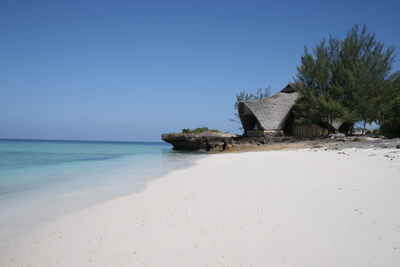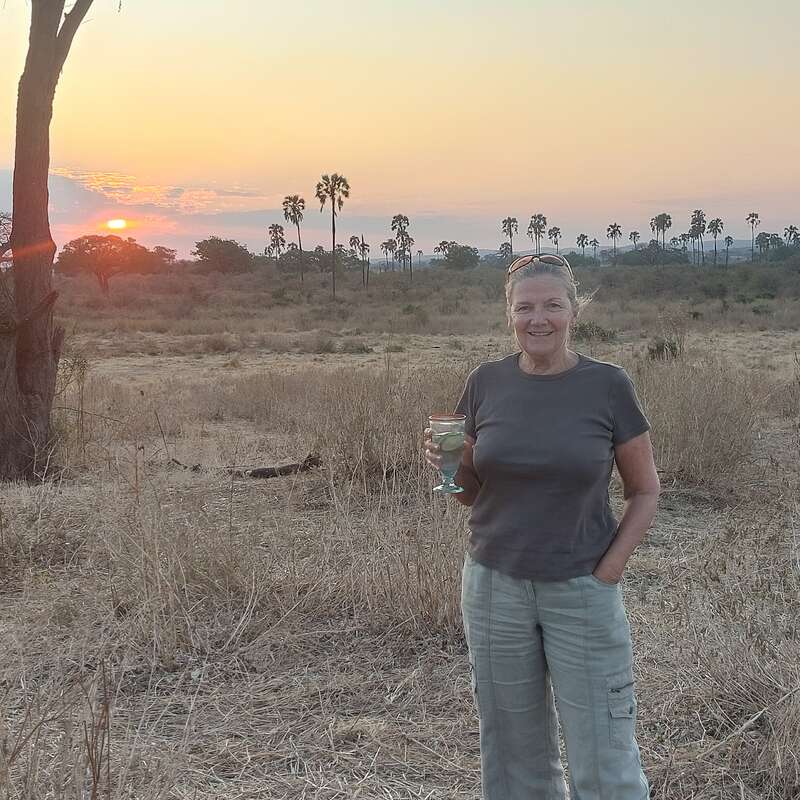About Chumbe Island Lodge
Chumbe Island is a tiny coral island about six miles by boat from Zanzibar Town.
Many years ago, Tanzania had a military base here and strictly restricted access to the surrounding ocean. Thus the area's coral remained untouched – even by local fishermen. After that, conservationists realised its value and when the military left, in 1993 the area was placed under the protection of its own marine park: Chumbe Island Coral Park.
If you are conservation-minded, love snorkeling, or are interested in design – then you should certainly include Chumbe Island in your holiday – it's a great place offering a fascinating experience, and we're very proud to be able to support it.
Accommodation
7 bungalows
Children
Good for any age
Open
Mid June to mid April
Activities

Birdwatching

Boat trip

Scuba-diving

Snorkelling

Watersports
Traveller reviews of Chumbe Island Lodge
50 real, un-edited reviews from Expert Africa's travellers.
Arrived 6 Aug 2024, 2 nights
"Chumbe Island Lodge review"
Overall rating: Excellent
Arrived 4 Aug 2024, 2 nights
"Chumbe Island Lodge review"
Overall rating: Excellent
Arrived 18 Aug 2021, 3 nights
"Chumbe Island Lodge review"
Overall rating: Excellent
Arrived 9 Jul 2019, 3 nights
"Chumbe Island Lodge review"
Overall rating: Excellent
Arrived 28 Sep 2018, 3 nights
"Chumbe Island - 3 nights"
Overall rating: Excellent
Arrived 17 Aug 2018, 2 nights
"Chumbe Island Lodge review"
Overall rating: Excellent
Arrived 16 Jun 2018, 2 nights
"Amazing castaway experience"
Overall rating: Excellent
Arrived 18 Jan 2018, 2 nights
"Chumbe Island Lodge Review"
Overall rating: Good
Arrived 22 Aug 2017, 2 nights
"Chumbe Island Lodge review"
Overall rating: Good
Arrived 12 Sep 2016, 2 nights
"Peaceful Chumbe Island"
Overall rating: Excellent
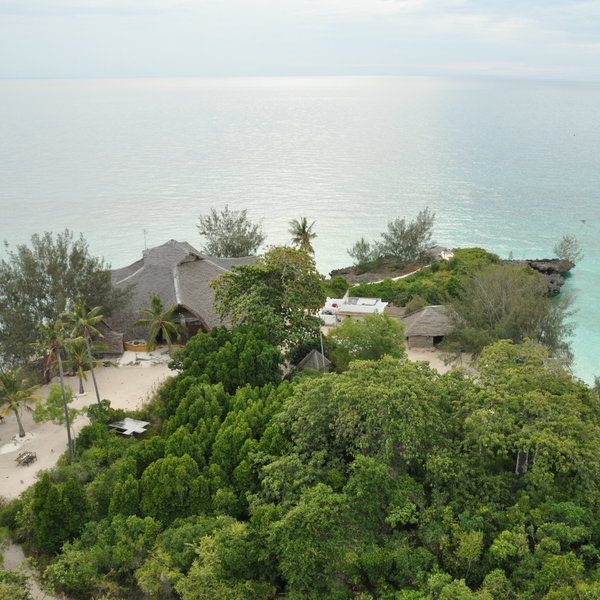
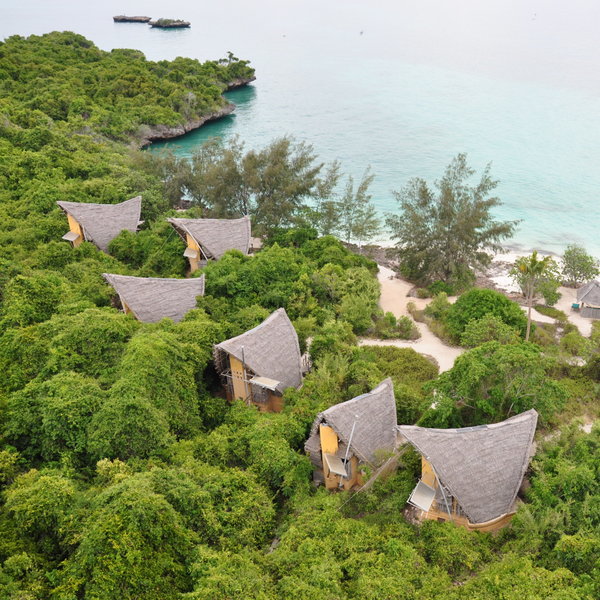
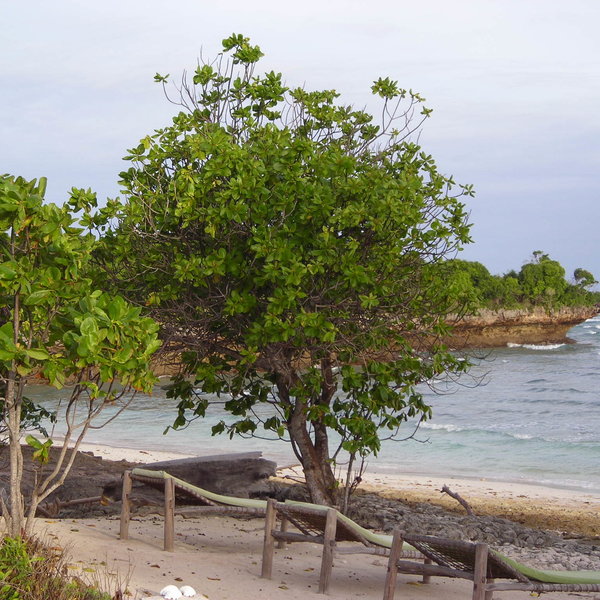
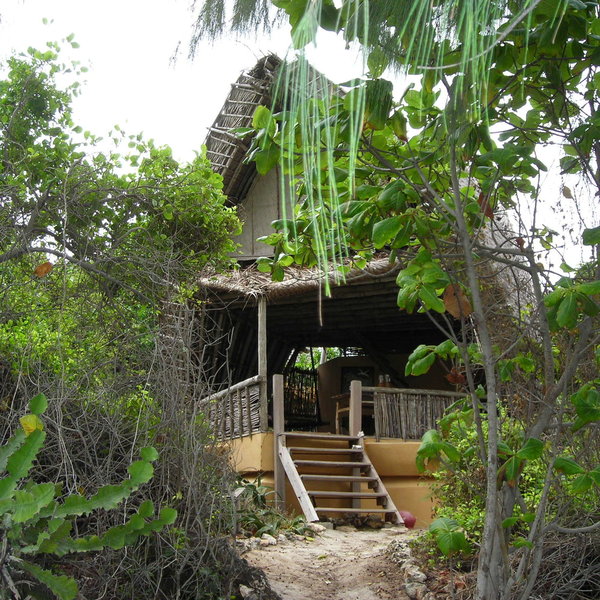
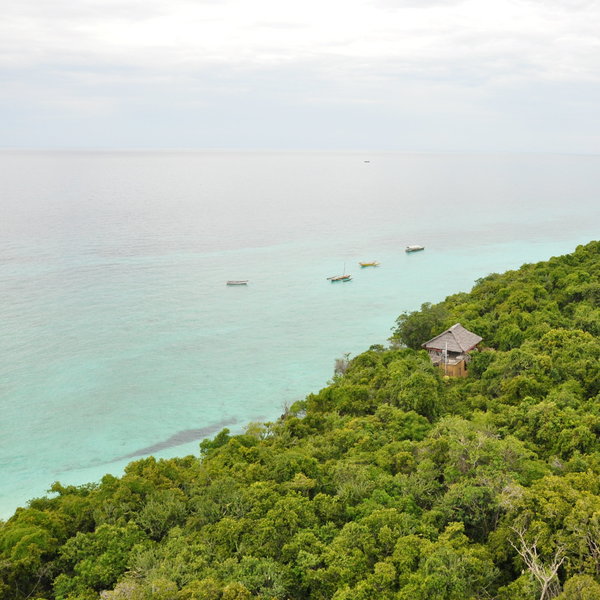
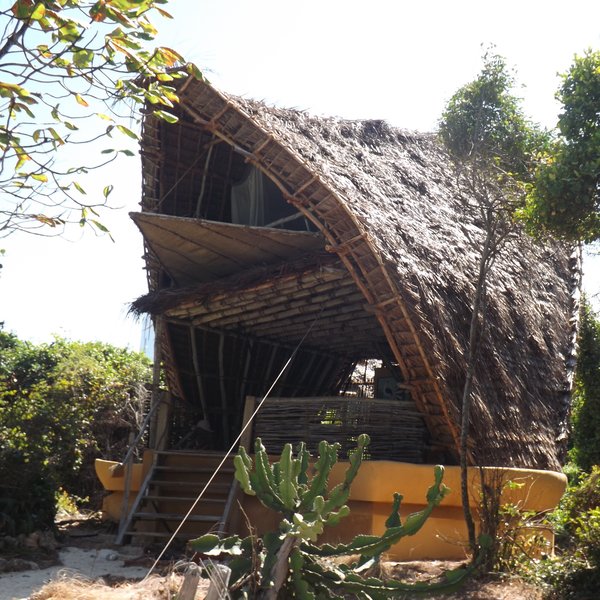
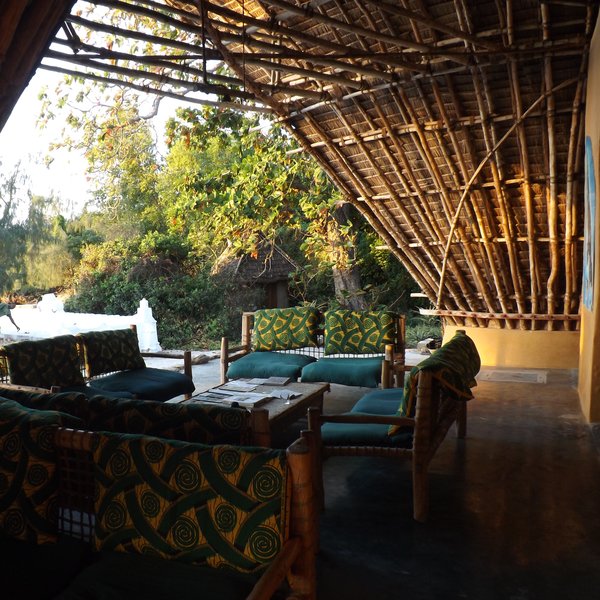
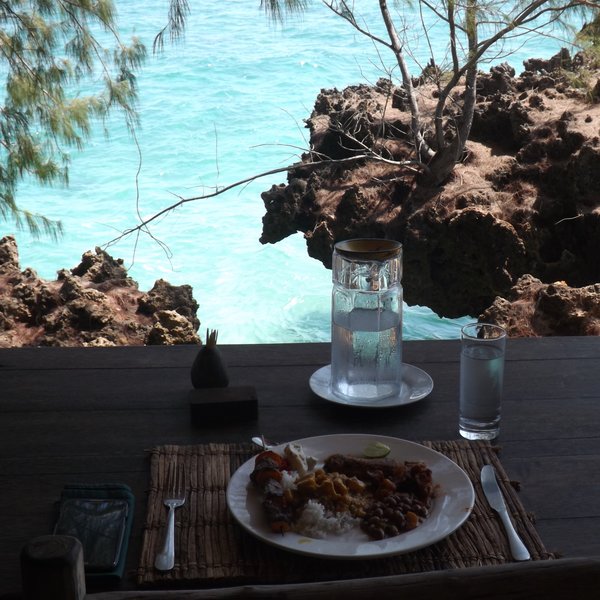
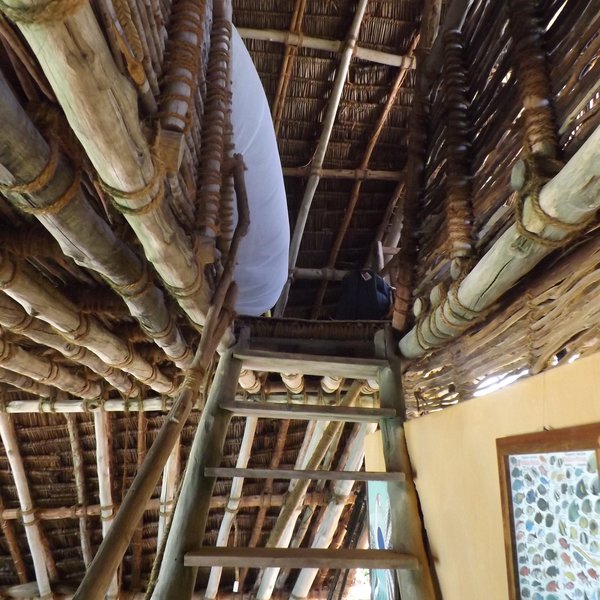
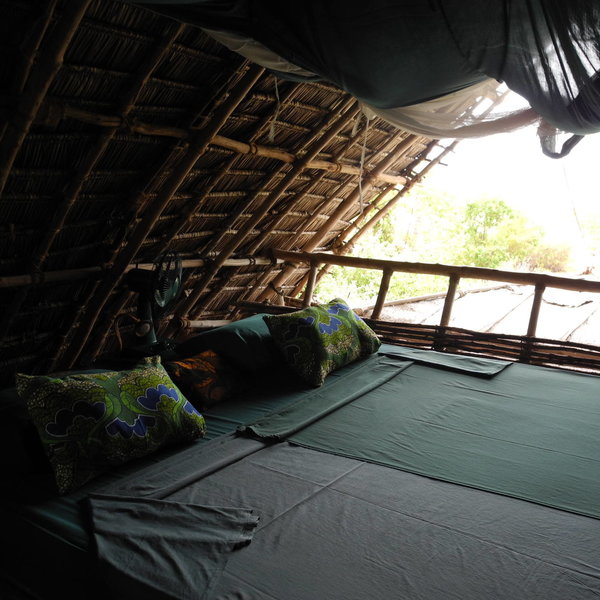
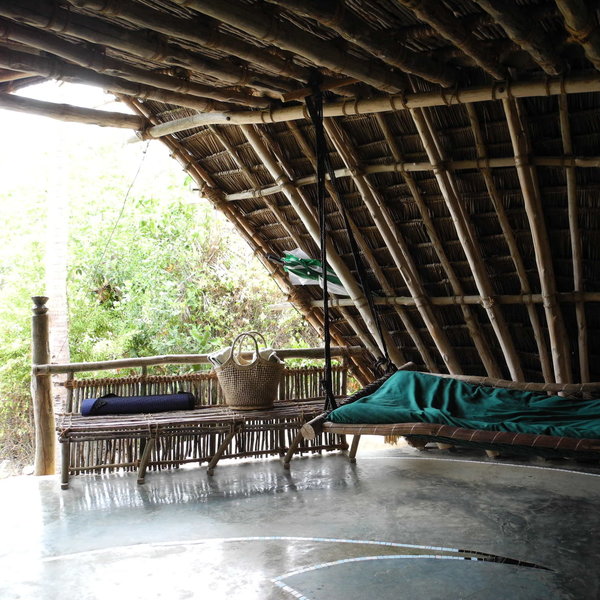
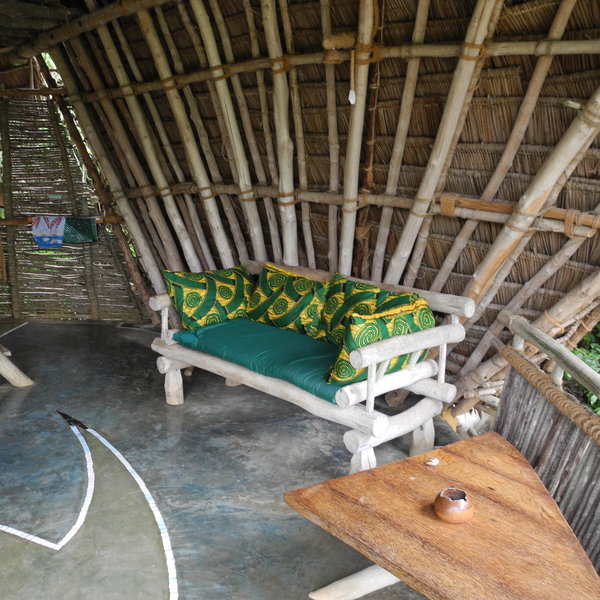
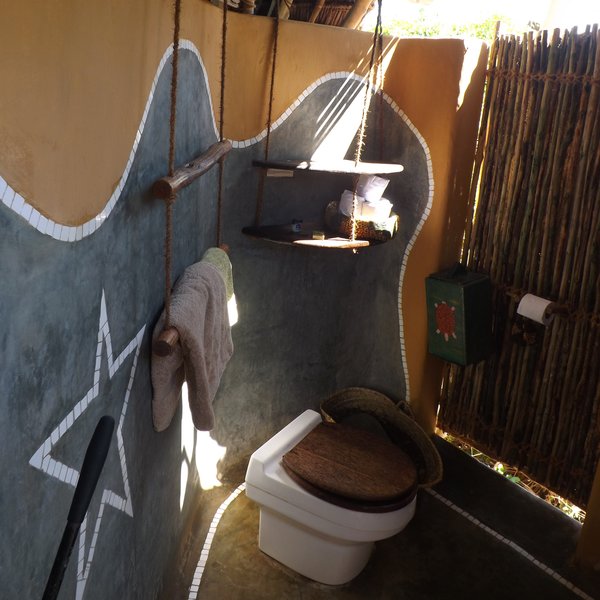
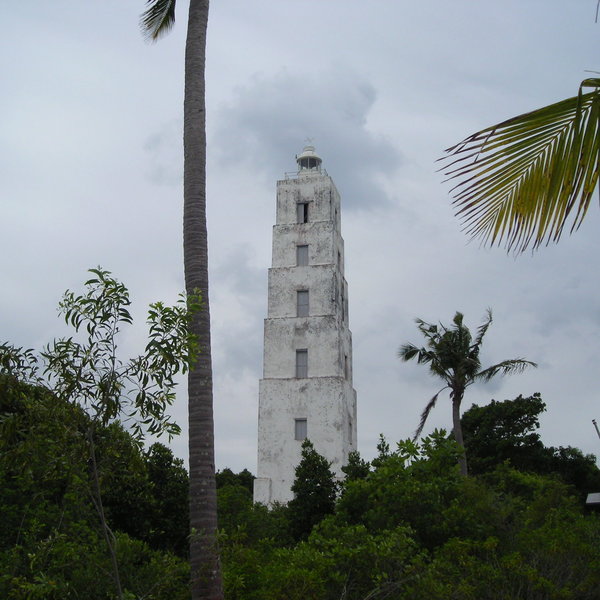
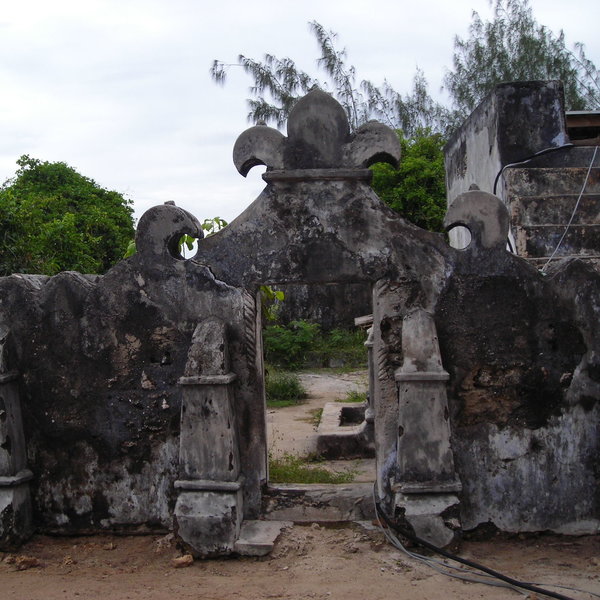
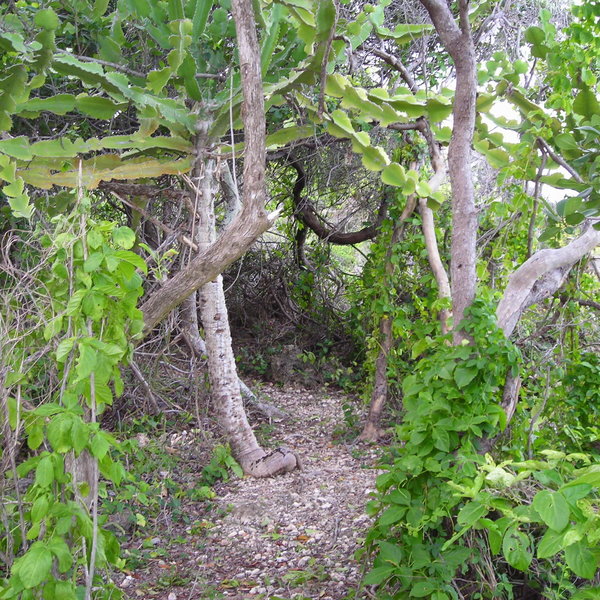
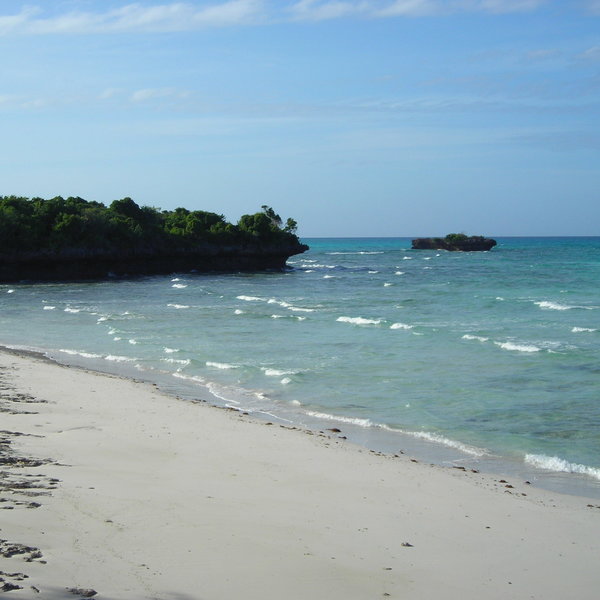
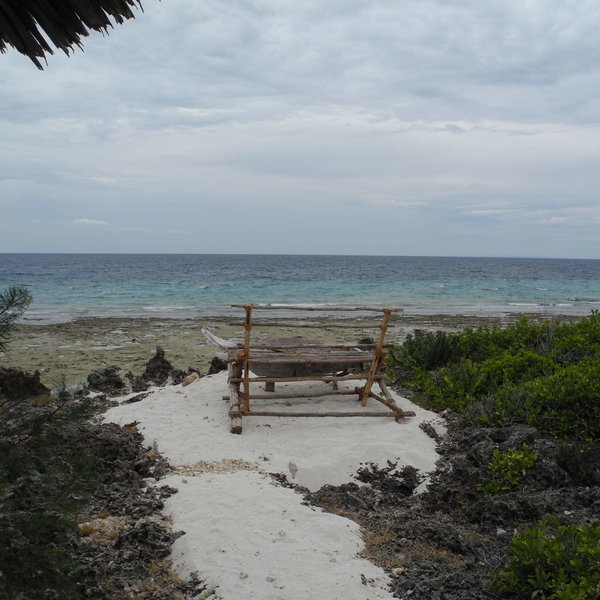
Expert Africa's gallery
When we travel we take lots of photos ourselves to give you a real and un-edited view of the holidays. See our 44 pictures of Chumbe Island Lodge to get the candid view.
View galleryHolidays visiting Chumbe Island Lodge
Just ideas, we'll always tailor-make a trip for you
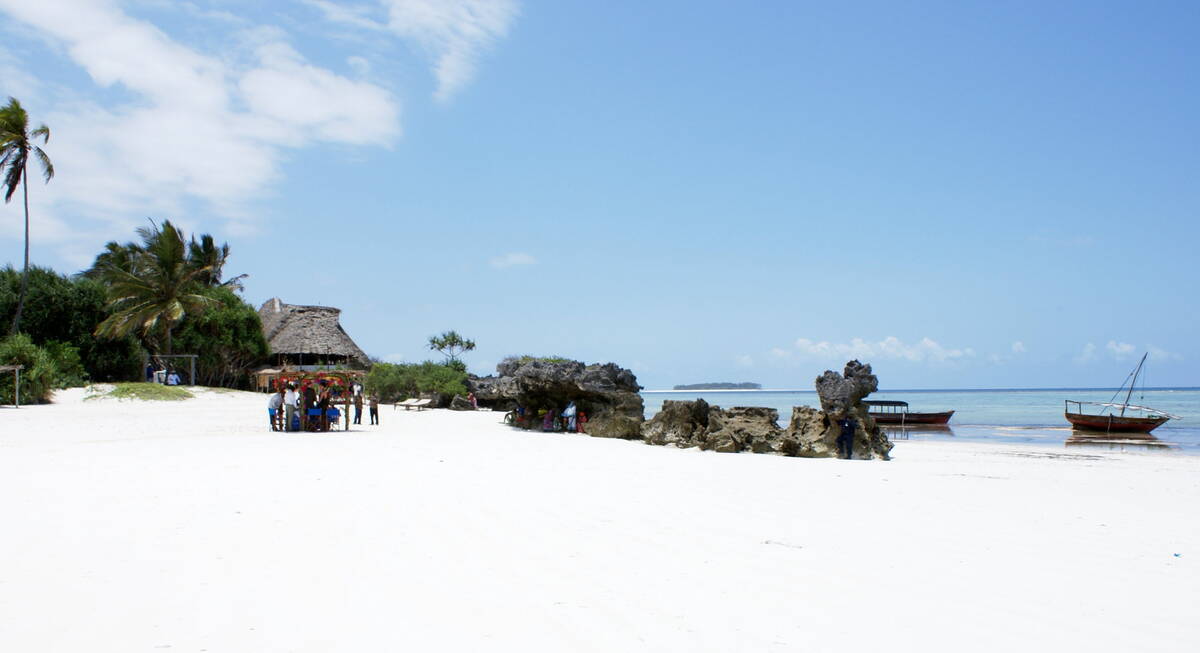
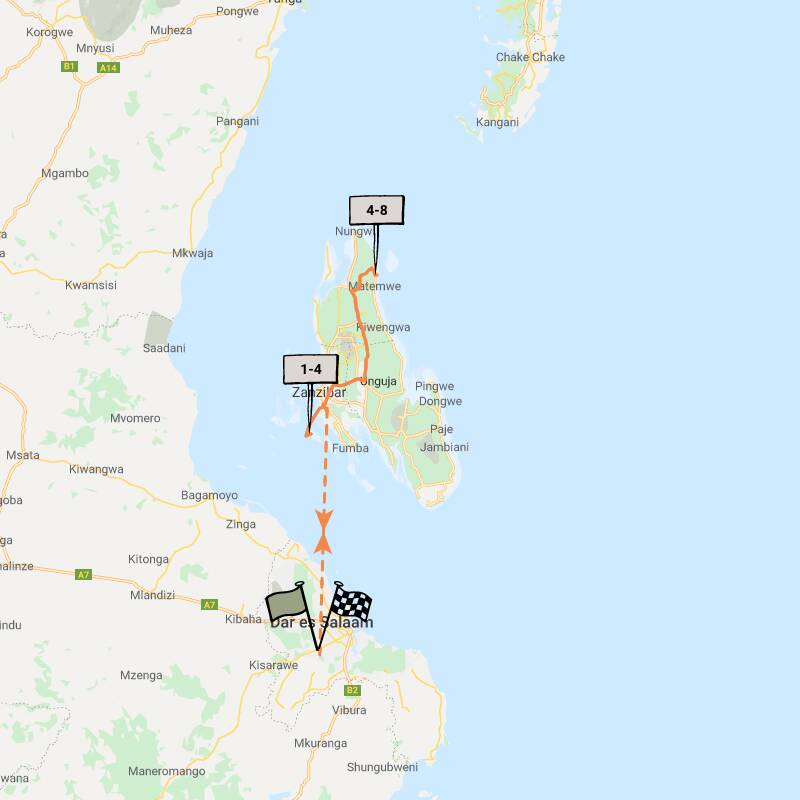
Papaya Beach Holiday
7 days • 2 locations • 1 country
DAR ES SALAAM AIRPORT TO DAR ES SALAAM AIRPORT
A relaxing holiday with a range of activities, where Chumbe Island Lodge and Matemwe offer tranquil atmospheres, considerable exclusivity and the chance to learn about worthwhile local conservation efforts.
Visiting East Coast Zanzibar, South-west Zanzibar
US$3,100 - US$3,910 per person
Chumbe Island Lodge: Our full report
Chumbe Island is a tiny coral island about six miles by boat from Zanzibar Town.
Many years ago, Tanzania had a military base here and strictly restricted access to the surrounding ocean. Thus the area's coral remained untouched – even by local fishermen. After that, conservationists realised its value and when the military left, in 1993 the area was placed under the protection of its own marine park: Chumbe Island Coral Park.
At the heart of this park stands the small island itself, and on this is the remarkable Chumbe Island Lodge. This is a trail-blazing, award-winning example of a lodge that is genuinely ecologically sensitive – and hence you may hear it referred to as “Chumbe Island Eco-lodge" or sometimes “Chumbe Eco-resort", or even simply “Chumbe Island Resort" – although, in fact, Chumbe doesn't feel anything like an island resort at all – and it's as far from a standard 'hotel' as you can imagine!
Chumbe Island Lodge is run by the not for profit private company Chumbe Island Coral Park Ltd (CHICOP), and staffed by a very welcoming team of Zanzibari and Tanzanian people who are fully engaged with the projects aims and ethos. The ecologically-sensitive design of the lodge is award-winning. It's not only very green, but it also takes mainly local materials and building techniques to a higher level – to produce quite spectacular results. The main dining and lounge area, which also functions as an education centre, is particularly impressive in the scale of its design.
For accommodation, Chumbe Island Lodge has one single-storey bungalow, plus six double-storey bungalows. All are lit by solar power at night. Each of the double-story bungalows has a bedroom on the top floor, one wall of which can be lowered to stay open to the stars. Downstairs is a bathroom, a lounge/living room area and a large hammock. In the bathroom, the solar-heated shower uses rainwater, and the toilet is a clever, long-drop composting design. Due to the balconies on the double story bungalows, we advise the single story 'Garden Bungalow' for families with younger children.
It's important to understand that (like most islands made of coral) there's no good groundwater on Chumbe Island. Hence all of the lodge's buildings have been ingeniously designed to catch, filter and store their own rainwater.
All of the bungalows are within 30 seconds' walk of the beach. The food is simple but when we last visited it was very fresh and good, with a strong emphasis on vegetables, fruit and seafood – prepared using traditional recipes and spices.
To get the best out of a visit to Chumbe, get involved with the activities; don't try to treat the place as a conventional beach resort – it really doesn't work as one.
Many of Chumbe's activities are included in the cost of staying here, all are guided by resident guides and most focus on the island's ecology. Escorted forest walks look at the island's geology, flora and fauna - including endangered giant coconut crabs – seeing these amazing creatures is enough reason to visit Chumbe on their own! On Chumbe's beaches, walks explore the rich inter-tidal zone, and then further into the sea, guides who know the reefs around the island lead snorkelling trips (scuba-diving is prohibited). The reefs around Chumbe are one of the most impressive coral gardens off the coast of Africa; they contain over 400 species of fish and 200 species of hard coral.
Chumbe Island Coral Park ploughs its proceeds back into local conservation and education programmes; and has very strong links with, and involvement from, the local communities in the area.
Geographics
- Location
- South-west Zanzibar, Zanzibar
- Ideal length of stay
- Chumbe Island Lodge is a delightful and fascinating place, ideal for a stay of two, or perhaps three, nights. It's nothing like a conventional beach hotel or resort – so we don't think that it works for a 7-night stay. However, 2-3 nights is perfect!
Note that transfer times may require you to stay in the Stone Town area the night before coming here; ask us for details. - Directions
- There is a scheduled boat transfer from Mbweni Beach on Zanzibar that leaves at 10am each day. The transfer takes about 45 minutes.
- Accessible by
- Fly-and-Transfer
Food & drink
- Usual board basis
- Full Board
- Food quality
- Chumbe's food is usually served buffet-style, and it's relatively simple, but when we last visited it was very fresh and good.
Expect lots of salads, and a strong emphasis on vegetables and vegetarian dishes, plus a sprinkling of seas-food and meat dishes.
Deserts often revolve around fresh fruit and fruit salads – and the bar mixes up a 'mean' cocktail! - Dining style
- Individual Tables
- Dining locations
- Indoor and Outdoor Dining
- Further dining info, including room service
- Possible upon special request
- Drinks included
- Sodas, juices, water, tea/coffee and snacks are included; alcoholic drinks are excluded
Special interests
- Family holidays
- For older, adventurous kids Chumbe Island can be a great choice. There is only one lodge on the island, with lots of space to run around and explore. Teenagers are likely to enjoy snorkelling over the reefs and discovering the tropical forest.
- See ideas for Family holidays in Zanzibar
- Diving & snorkelling
- Chumbe Island has some of the most pristine coral gardens in Tanzania and reef around the island has plenty of fish and coral. To help preserve them, scuba diving isn't allowed here, but guided snorkelling trips are a wonderful experience.
- See ideas for Diving & snorkelling in Zanzibar
Children
- Attitude towards children
- Children of any age are welcome.
- Property’s age restrictions
- None
- Special activities & services
- Chumbe Island can arrange child minding services.
- Equipment
- Chumbe have baby cots and highchairs.
- Generally recommended for children
- Yes
- Notes
- Superb for older children with an interest in wildlife, who will enjoy the guided inter-tidal walks (around the rock pools), and other activities.
Communications
- Power supply notes
- Batteries can be charged in the main area. There are solar-powered lights in the bandas.
- Communications
- There is limited mobile access in the office. There is usually WiFi in the main visitors centre.
- TV & radio
- No
- Water supply
- Other
- Water supply notes
- There is hot and cold water that is heated by the sun. Drinking water is supplied. The toilets use a long-drop composting system.
Sustainability
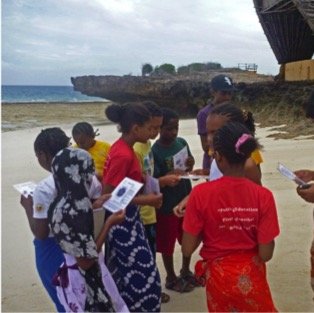
An all-inclusive environmental education programme
As an award winning nature reserve, Chumbe Island is the ideal location for adventurous eco-tourism, offering guests exclusive access to the Chumbe Reef Sanctuary and the Closed Forest Reserve, where no damaging activities are allowed. Nevertheless, access to education is poor for the locals, and often requires pupils to memorize through repetition information that has little relationship with the surrounding environment. This, in return, raises challenges when it comes to the long-term sustainability of the region.
To change this, Chumbe takes locals – from school children and teachers to government officials and fishers – in sponsored field trips and provides free environmental education. Prior to the excursions, teachers involved in Chumbe’ Environmental Education program pay interactive visits to the schools. This allows them to take a first step towards making students aware of the environmental problems the island is facing. It also provides them the chance to find out more about the students and therefore plan the camp according to their interests. Using innovative teaching techniques, accompanying teachers learn to link theory with field practice. For example, during a one-day excursion to Chumbe Island, students learn about the nearby ecosystem, whereas teachers get insights in how to teach practical field based environmental education.
The initative was well-received by all participants, and got the support of many NGOs, among which the International Coral Reef Action Network (ICRAN). Tourists’ contribution is also extremely valuable for the programme. Visitors can choose to donate their snorkeling masks after their stays, or bring useful items along with them through the worldwide ‘Pack for a purpose’ initiative.
See more great sustainability projects in Zanzibar
Health & safety
- Malarial protection recommended
- Yes
- Medical care
- There are first aid kits in the main area and the staff are all trained.
- Dangerous animals
- Low Risk
- Fire safety
- There are fire extinguishers outside every room.
Activities
Birdwatching
Boat trip
Scuba-diving
Snorkelling
Watersports
Extras
- Disabled access
- Not Possible
- Laundry facilities
- Not possible.
- Money
- There are safes in all of the main rooms.
- Accepted payment on location
- Chumbe Island can accept payment in cash – TZS, GBP, USD and EUR. They can also accept Mastercard, Visa and Amex. Please note that there is a 5% surcharge for this.
Plan and book your trip with Expert Africa
All of our trips are tailor-made, so we'll always adapt them to suit you. Talk to an Expert and let us plan and arrange your perfect trip.

Talk to an Expert
Call or email us now! We’ll match you with the Specialist in our team who is best suited to help you. Then together we can start planning your trip.

Set up your itinerary
Based on our experience and your ideas, your specialist will create a detailed, costed itinerary. We’ll refine it together, until we have a trip that you’re perfectly happy with.

Prepare for your trip
The same Specialist will make the seamless arrangements for your trip, send you detailed travel documents, and be available to answer any questions before you depart.

Travel with peace of mind
After you set off, you’ll be cared for by our partners in Africa, most of whom have worked with Expert Africa for decades. And if you ever need us urgently, we’re available 24/7.

When you return
We love to learn about your trip, and so will always be grateful if you’ve the time to give feedback to your Specialist when you return.
Chumbe Island Lodge's location
Look closer at the environment and surroundings of Chumbe Island Lodge.
Excursions from Chumbe Island Lodge
Optional extra day-trips and excursions possible whilst you're staying at Chumbe Island Lodge. Talk to us: these are usually best arranged before you go.
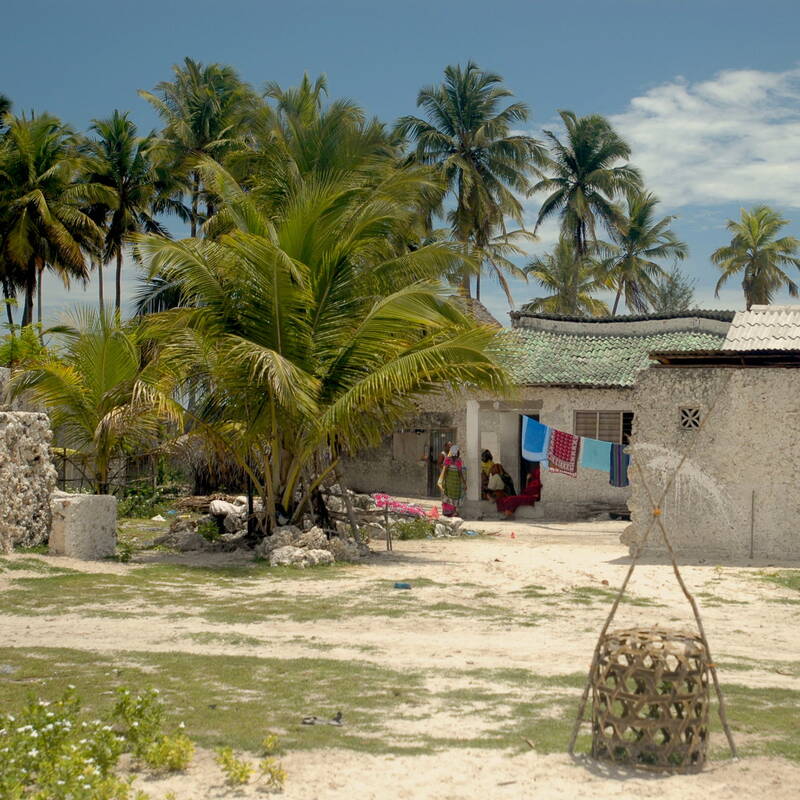
Jambiani Village Tour
Half-day - mornings
Tear yourself away from the soft white sands of Zanzibar to get under the skin of the history and culture of Jambiani village. Join a knowledgeable local guide to discover the intricacies of day-to-day life in this traditional coastal village, with much of the profits being ploughed back into the community.
More about Village Tour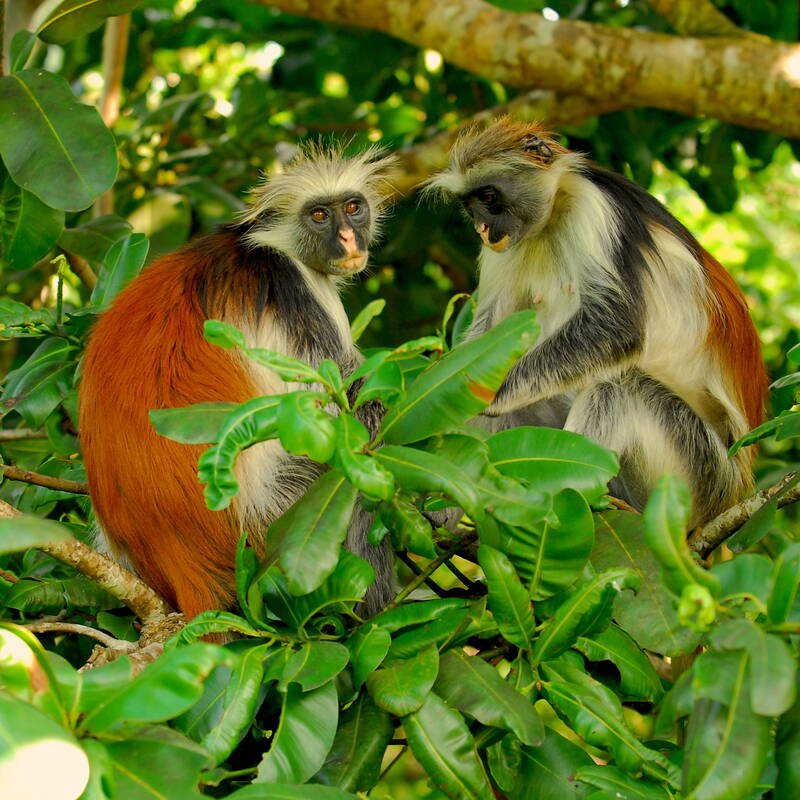
Jozani Forest Tour
Half-day or combine with other tours
For nature lovers, Jozani Forest is a must. One of the last sanctuaries of the red colobus monkey, it features a diverse range of habitats, from mangrove forests to salt marshes. Keep your eyes peeled for other forest residents, including Sykes’ monkey, bushbabies, duikers and more than 40 species of bird.
More about Jozani ForestOther lodges in South-west Zanzibar
Alternative places to stay in this same area.
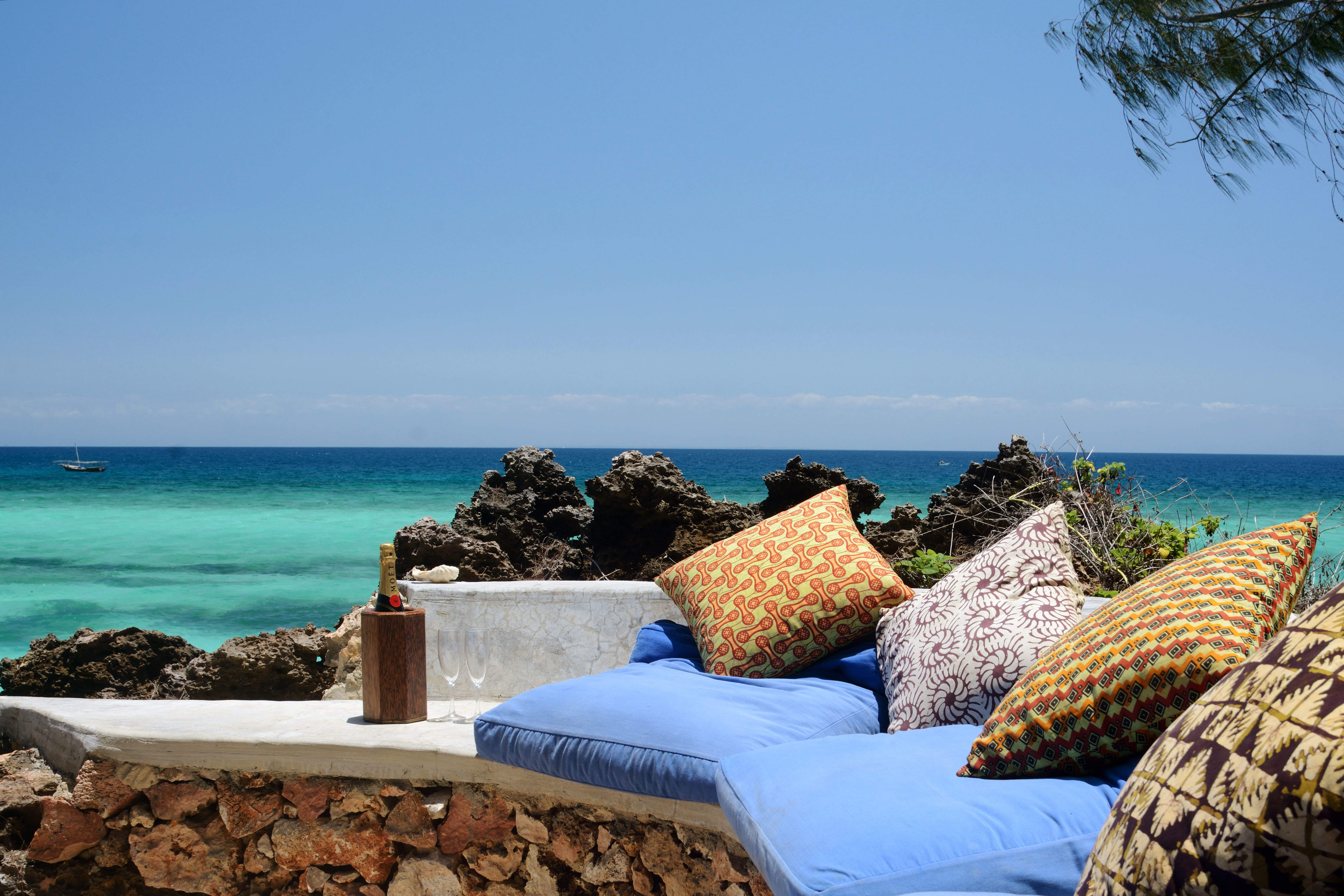
Unguja Lodge
Unguja is a small, rustic lodge in southern Zanzibar standing on a quiet beach, with some of the most spacious rooms we have seen on Zanzibar.
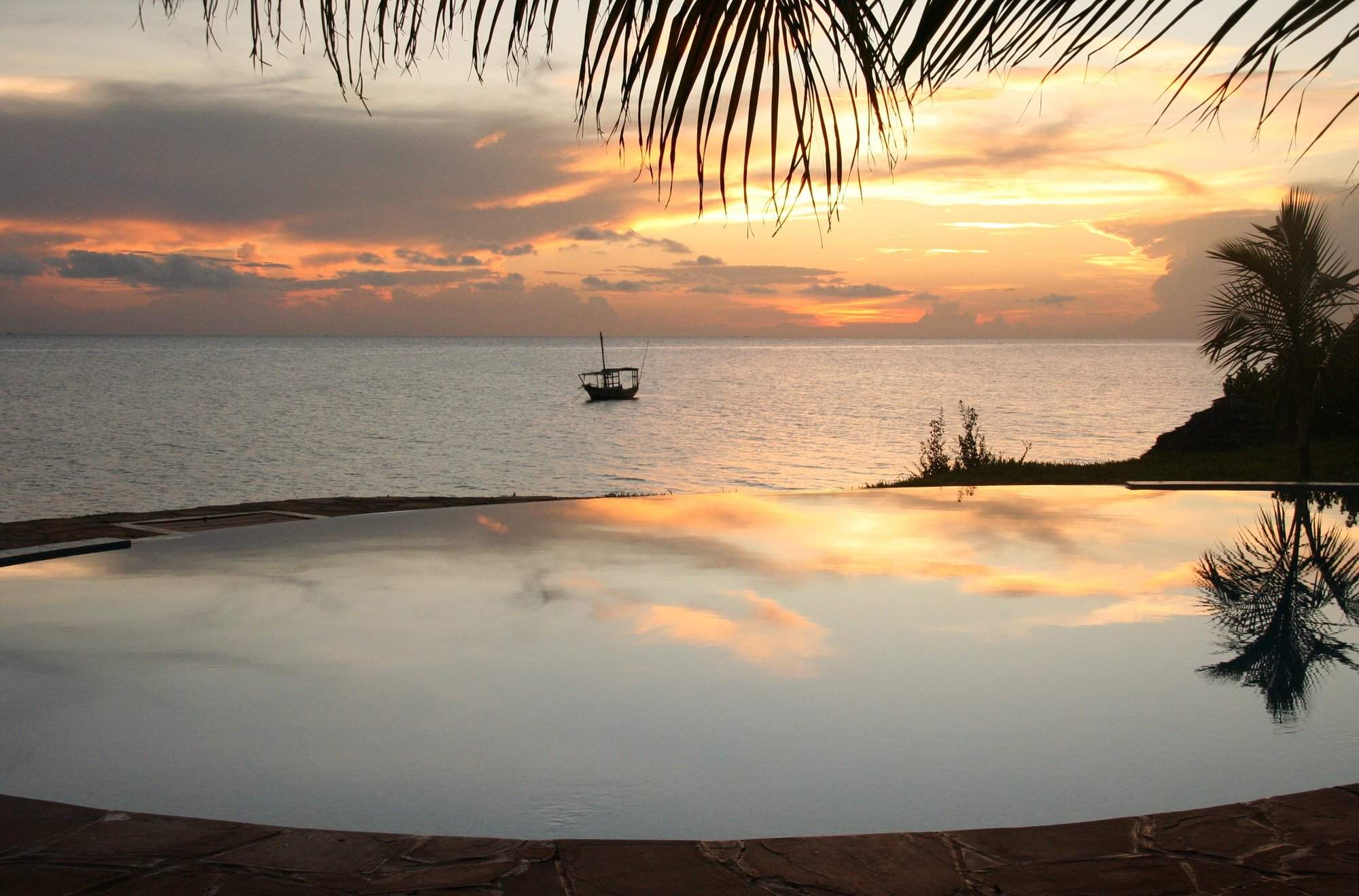
Fumba Beach Lodge
Fumba Beach Lodge is stylishly put together, with spacious, luxurious rooms, comfortable communal areas and a fantastic infinity pool.
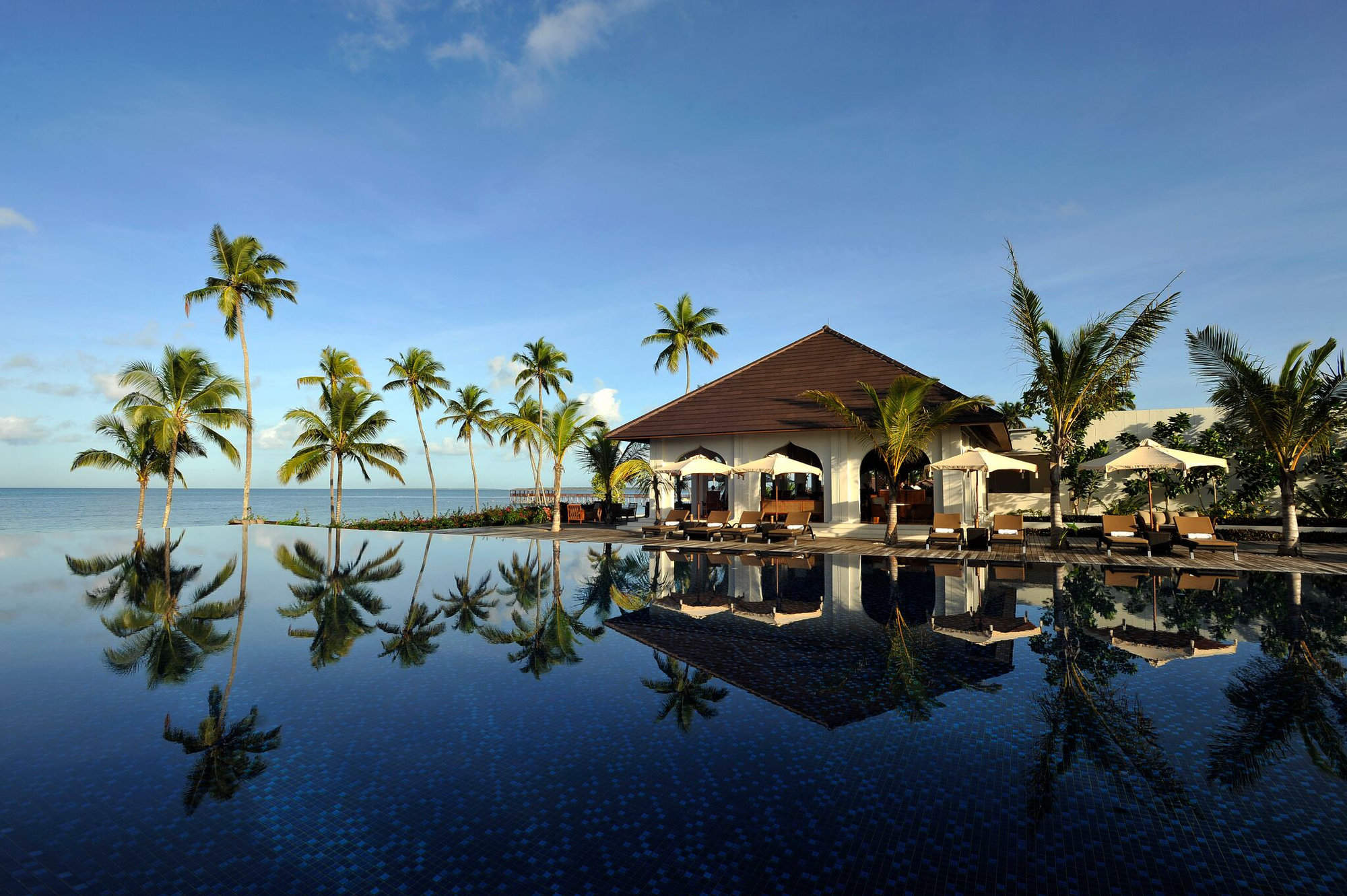
The Residence
The Residence is a very large resort hotel in south-west Zanzibar. Each villa has its own 8-metre lap pool.
When to go to South-west Zanzibar
Our month by month guide: What it's like to visit Chumbe Island Lodge in South-west Zanzibar
Jan
Feb
Mar
Apr
May
Jun
Jul
Aug
Sep
Oct
Nov
Dec
Zanzibar in January
As on the Tanzanian mainland, January typically marks the start of the short dry season in Zanzibar. Conditions are likely to be hot and mostly dry, with temperatures exceeding 30ºC, although it is not uncommon to get a tropical shower in the afternoons. January can feel very humid at times, and this is particularly noticeable in Stone Town, although this can be tempered by the cooling sea breeze.
New Year is one of the most popular times to visit Zanzibar, with many hotels being fully booked over the festive period. The island generally becomes much quieter after 10th January, and prices drop too.
- Mostly hot with the occasional shower.
- High humidity, which can be relieved by the refreshing breeze.
- Very busy over New Year, with high prices and long minimum stays often
- Quieter and better value later in the month.
- Wind from the northeast, and so the southwest coast is more sheltered.
Our view
A good time to visit, with pros & cons
Weather in January
Zanzibar in February
The weather in February is fairly similar to January, with days typically being hot and sunny although expect the occasional rainy spell. The humidity remains high, however the coastal areas often have a refreshing breeze. Zanzibar is fairly quiet in February, and with comparatively low prices it can be excellent value for money.
At this time the wind blows from the northeast, and so the southwest coast is often more sheltered and there can be good diving in the Menai Bay. The northeast winds can also lead to good conditions for kite surfing, with many kite surfers heading to the southeast coast and Michamvi Peninsula. For music lovers, Stone Town hosts an annual African music festival ‘Sauti za Busara’ each February. The festival's dates change each year; ask us for details.
- Variable: mostly hot and humid with some cloud and rainy spells.
- Fewer tourists and comparatively low prices.
- Popular time for kite surfing, especially around the southeast coast.
- North easterly wind, better diving in the south west of the island.
- ‘Sauti za Busara’ music festival in early February.
Our view
A good time to visit, with pros & cons
Weather in February
Zanzibar in March
March sees the start of the ‘long rains’ in Zanzibar, although the exact start date varies every year. The weather can be unpredictable, with a combination of hot sunny days, rain showers, and the occasional tropical storm. The arrival of the rains lowers the humidity, and it can also lead to some beautiful sunsets – most obviously on the west coast where you can watch the sunset over the ocean. Prices remain low during March, and the island is likely to be relatively quiet.
Diving is generally not recommended during the rainy season, as variable conditions can lead to reduced visibility from rainfall runoff, and choppy water.
- Hot and humid, leading to heavy rains later in the month.
- Low prices, and the island is comparatively quiet.
- Variable weather leads to poor conditions for diving.
- The start of the rains can lead to beautiful sunsets.
Our view
This is not a great time to visit
Weather in March
Zanzibar in April
April is typically the wettest month of the year in Zanzibar, and the long rains are in full force. The average rainfall is more than 250mm during this month, and tropical storms are common. Flooding regularly occurs, which can impact the quality of the roads, and consequently cause difficult, slow journeys across the island. Many of the hotels and beach lodges close at this time, so accommodation options can be limited. Having said this, prices are at their lowest, and if you don’t mind the risk of bad weather you can get some real bargains.
Despite the poor conditions, Easter weekend is often popular, and advance booking is recommended. Due to the strong likelihood of rain and poor conditions diving is inadvisable at this time.
- Heavy rain and tropical storms expected throughout the month.
- Areas of flooding leading to poor travel conditions.
- Many hotels close for refurbishment at this time.
- Low prices and few other tourists.
- Diving inadvisable due to heavy rain and reduced visibility.
Our view
A time to avoid if possible
Weather in April
Zanzibar in May
The long rains continue into May, and as with April you can expect thunderstorms and heavy showers, although these typically ease up towards the end of the month. Parts of the island can experience flooding, causing damage to roads and impacting travel times. The temperature typically drops a little in May, with a daytime average of around 25ºC. The rains lead to a lower humidity too, and mornings and evenings can feel a bit cooler.
Many of the hotels and lodges are still closed, however a handful stay open and prices remain low. While diving is possible, the rain and storms mean that diving conditions are not at their best.
- Continuation of the long rains, with thunderstorms and lightning.
- Flooding common, but conditions becoming drier as the month progresses
- Drop in temperatures, with cooler mornings and evenings.
- Prices low, and many hotels remain closed.
Our view
A time to avoid if possible
Weather in May
Zanzibar in June
June marks the start of the long dry season in Zanzibar. While the island still gets rainfall, especially early in the month, it’s becomes less likely as the month progresses. Temperatures remain steady, with daytime highs averaging 25ºC, and it likely to be mostly dry. Any rain you do experience is likely to be in shorter bursts rather than heavy storms and hours of continuous rain, although conditions vary from year to year.
The wind direction switches to blow from the southeast, and the northeast coast is likely to be more sheltered at this time. Diving conditions can be variable, and while they are generally good there can be some rough days.
- Variable weather: mostly hot and dry, with some rainy showers.
- Wind from the southwest, and more sheltered in the north east.
- Diving conditions variable, dependent on the wind and rain.
- Lower prices and generally good weather can lead to great value.
Our view
A good time to visit, with pros & cons
Weather in June
Zanzibar in July
July is a very popular time to go to Zanzibar, and this coincides with the long dry season. July and August are the school holidays throughout much of Europe, and Zanzibar can often be busy with families. Weather conditions are generally hot and dry and pretty ideal for a beach holiday, however there is still a chance of an occasional short shower. Conditions for diving are typically pretty good, however this will be dependent on recent weather conditions.
The Zanzibar International Film Festival takes place in July, with lots of people flocking to Stone Town to soak up the atmosphere. The dates for the festival change every year, so chat to Expert Africa for details.
- Typically hot and dry with clear skies, although showers are possible.
- Can become very busy, with many families traveling during holidays.
- Zanzibar International Film Festival takes place in Stone Town.
- Great beach weather result in high prices.
Our view
A very good time to visit
Weather in July
Zanzibar in August
August is one of the most popular times of year to visit Zanzibar, and with good reason; this is one of the driest months and it is typically hot with clear skies – ideal for relaxing on the beach. Many families choose to visit during August, and the island can be busy, and this is particularly noticeable in Stone Town and around the more popular snorkelling sites.
High demand can mean that many of the more popular hotels and beach lodges can be booked up more than 6 months ahead, so advance booking is crucial. Due to the popularity and great beach weather prices are high.
- Hot and sunny, generally ideal for relaxing on the beach.
- Popular time for families and the island can be busy.
- High demand leads to higher prices, and advance booking is essential.
- With little rain falling and causing soil run-off, the sea is clear.
Our view
Fantastic: the very best time to visit
Weather in August
Zanzibar in September
September is an excellent time of year to visit Zanzibar. Weather conditions are typically very good, with clear skies and temperatures ranging from 20¬–30ºC. September is also one of the driest months, averaging 50mm of rain during the month, however rain showers are still possible. Due to the great beach conditions prices remain high, however with fewer families travelling in September the island can be a little quieter at this time.
September to December are often some of the calmest months at sea, which can result in superb conditions for diving. The wind typically blows from the southeast, and the northeast coast can often be a little more sheltered. You can find some beautiful snorkelling and diving spots around Mnemba Island.
- Warm temperatures and clear skies, with the off-chance of rain.
- Fewer families travelling, and the island can be a little quieter.
- Great beach weather means that prices remain high.
- Relatively calm seas result in good conditions for diving.
Our view
Fantastic: the very best time to visit
Weather in September
Zanzibar in October
October is the tail end of the dry season and you can generally expect hot, dry conditions. The short rains typically start in early November, and so this does mean that there is an increased likelihood of rainy spells as the month progresses. October remains a popular month to travel, particularly so during the European half-term school holidays, and advance booking is advised.
With high demand and great weather prices remain high, however there are some long-stay special offers to be found. South-easterly winds mean that the northeast coast can be more sheltered and conditions for diving can be good.
- End of the dry season, generally good beach weather.
- Increased chance of rain, particularly near the end of the month.
- Popular with families during the half-term school holiday.
- High demand means prices remain high.
- Northeast coast generally more sheltered.
Our view
A very good time to visit
Weather in October
Zanzibar in November
The short rains start during November, however their exact start varies year on year. You are likely to experience a mixture of hot, dry days with the occasional tropical shower, however we find that short showers can actually be quite refreshing. With the start of the rains the humidity can shoot up and while the coastal properties tend to receive a pleasant cooling breeze Stone Town and the island interior can feel quite hot and clammy.
Prices drop in November and there are some real bargains to be found. This time of year can be great value for money, especially near the start of the month when the weather conditions are very comparable to late October. The demand is generally lower, and the island starts to feel much quieter.
- Variable weather: mostly hot and dry but with some clouds and rain.
- Hot temperatures, with humidity on the rise.
- Less busy than October, and with lower prices it can be great value.
Our view
A good time to visit, with pros & cons
Weather in November
Zanzibar in December
December falls in to the short rainy season, and the weather can be variable. Days are likely to be hot and humid, with the occasional patch of rain, although showers can be a blessing in disguise as they help to lower the temperature. Early December is fairly quiet and prices are low, however this changes dramatically over Christmas and New Year.
The festive season, from around 20th December to 5th January, is arguably the most popular time to visit Zanzibar. Prices are at their highest, and long minimum stays are imposed. Due to the very high demand booking early is essential, especially if you’re a group or a large family. Book six months to a year in advance, or even more, if possible.
- Variable weather, with a mix of hot, sunny days and tropical showers.
- High humidity, which may be mitigated by the cool ocean breeze.
- Quiet with lower prices earlier in the month.
- Busy and exceptionally popular over Christmas and New Year.
- Advance booking over Christmas and New Year is essential.
Our view
A good time to visit, with pros & cons
Weather in December

Looking for inspiration on where to travel next?
Visit our trip chooser to explore your options and find inspiration for your perfect African adventure
Inspire me